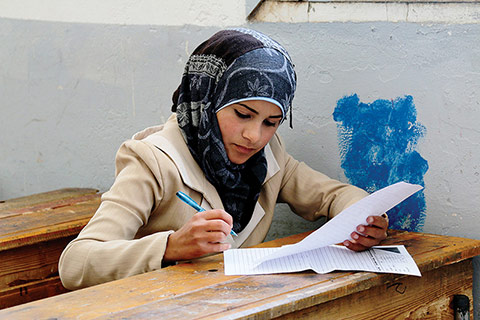The U of T community sprang into action this fall to assist Syrian refugees, with a commitment to create 100 bursaries worth $10,000 each. The bursary program for students at risk is part of Massey College’s Scholars at Risk initiative. While initially focusing on Syrian students, the program will eventually broaden to include other refugees who have had their education disrupted by conflict or war. U of T is committing up to $500,000 to match donations of any size, with the goal of raising $1 million for these 100 bursaries.
More than 7.6 million Syrians have been internally displaced from their homes, while another four million have fled the country since the outbreak of armed conflict in 2011. U of T students have been helping those affected by the tragedy by fundraising and donating clothes: the U of T Refugee Alliance, for example, held a used-clothing drive to help refugees at the Dar Al Fatwa camp in Lebanon prepare for winter. On Nov. 13, the undergraduate and graduate student unions of the department of Near and Middle Eastern Civilization held a seminar, in collaboration with the Syria Solidarity Collective, on various aspects of the crisis.
U of T is also involved in the Lifeline Syria Challenge, spearheaded by Ryerson University. U of T, York University and OCAD University have partnered with Ryerson to sponsor 75 refugee families for up to a year. Vinitha Gengatharan, U of T’s liaison for the Lifeline Syria Challenge, came to Canada from Sri Lanka with her family 30 years ago, during the civil war. “I know what it is like to settle and start over in a new country, and I have a deep appreciation and gratitude to those who helped and supported my success. I see this initiative as one of the ways to ‘pay it forward’ to others.”
To make a donation, visit uoft.me/scholars-at-risk or Ryerson.ca/lifelinesyria.
Recent Posts
People Worry That AI Will Replace Workers. But It Could Make Some More Productive
These scholars say artificial intelligence could help reduce income inequality
A Sentinel for Global Health
AI is promising a better – and faster – way to monitor the world for emerging medical threats
The Age of Deception
AI is generating a disinformation arms race. The window to stop it may be closing




